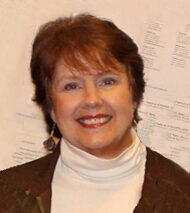
Nancy Huntting, Aesthetic Realism consultant, writes:
Where is the world economy headed? What does history, and a true understanding of the human self, show about that? Some of the most careful and wonderful description of economic history ever given is in the new issue of TRO! “Economics Will Be Ethical” is the bold, thrilling, and also (you’ll see) the very logical title of this latest number of The Right of Aesthetic Realism to Be Known.
The commentary by Ellen Reiss begins:
Dear Unknown Friends:
We have been serializing the powerful 1970 lecture Economics Is Diverse, by Eli Siegel, and we publish the third section of it here. This talk is part of his Goodbye Profit System series: lectures that are momentous, historic, and alive with knowledge that we need now.
He explained that by 1970, economics based on ill will for one’s fellow humans was proceeding with more and more difficulty, and would never be able to function with the success of once. Indeed, economics based on seeing people in terms of how much profit one can make from them would fare worse and be looked at with increasing distaste as the years passed. And so it has been. What is happening, Mr. Siegel explained, is not a matter of any fiscal -ism: it is a matter of ethics, and of ethics as a force in history.
Mr. Siegel was both the most passionate of scholars and the most careful, factual, exact. In this part of Economics Is Diverse, he uses a textbook he respected, Principles and Problems of Economics, by Ault and Eberling. And he comments on some of the basic matters in economic history—including how people (early humans and later ones) obtained various goods, and also produced them.
In this section too he comments with a certain casualness on a huge thing no other writer on economics had seen: the primal aesthetics of the subject. For economics too is in keeping with this Aesthetic Realism principle: “All beauty is a making one of opposites, and the making one of opposites is what we are going after in ourselves.” One and many are present, for instance, in something Mr. Siegel comments on: how many persons, each an individual, may work together toward one product….Read more